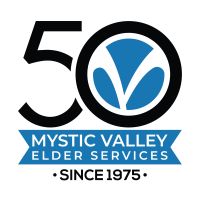October 9 is Ageism Awareness Day
Let’s be honest: Ageism is still common and in some cases it’s still socially acceptable. That joke you saw on the internet, that patronizing comment you heard, that assumption that older adults are incapable of using technology — they’re perpetuating prejudice and discrimination. Research shows the majority of older Americans experience ageism daily.*
Older adults are stereotyped as slow, forgetful and resistant to change. Yet the percentage of Americans over the age of 65 who are working has been growing since 1985. They’re part of the success of our workforce and our economy.
Retirement is stereotyped as a time of decline, idleness and disconnection from others. Yet many older Americans use this time to volunteer, pursue their hobbies, travel and become closer with their families. Here are two great examples of older adults doing just that:
• Sybil wrote her first book after retiring – a well-researched story of her family members who served in World War II, serving their country while dealing with military segregation. You can learn more about her book here. Sybil is 81 and has her second book on the way. She also takes Tai Chi classes three times a week with Mystic Valley Elder Services (MVES) and serves on the Board of the Afro-American Historical and Genealogical Society.
• Sheila’s age doesn’t stop her from pursuing her passions, but she does need a hand sometimes. Through MVES, she receives in-home assistance that allows her to “age in place.” It empowers the 89-year-old to pursue her passion, singing karaoke every week at two restaurant/bar venues in Malden.
We highlighted Sybil and Sheila earlier this year as part of a nationwide effort to “flip the script on aging” during Older Americans Month. It was a reminder that reducing an entire group to stereotypes of frailty and incompetence is not only wrong, it’s damaging to the way older adults see themselves. It also leads to discrimination in healthcare and the workplace.
Every person’s aging experience is different, just as every individual is different. Some of us need support to age independently and with dignity, but that doesn’t diminish our personhood or our potential.
How can you fight ageism? Don’t be part of the problem. Don’t ignore the problem. And remember that we all experience aging — when you encounter ageism, ask yourself how you’d feel and how you’d want it addressed.
Hear a Leader in the Anti-Ageism Movement
Interested in this topic? The keynote speaker at the upcoming MVES Legacy50 Summit is a nationally recognized anti-ageism activist, Ashton Applewhite. Ashton is an award-winning author and a TED Main Stage Speaker. Learn more about the event, and our speaker, at www.mves.org/legacy50.
We’ll also be presenting the MVES Community All-Star Awards at Legacy50. The awards and the event are both part of MVES’ yearlong 50th anniversary celebration. You can visit www.mves.org/50 to learn more about our 50th events and to nominate someone for an All-Star Award. We will be recognizing individuals who’ve made a difference in the lives of older adults and people with disabilities in the 11 communities we serve.
